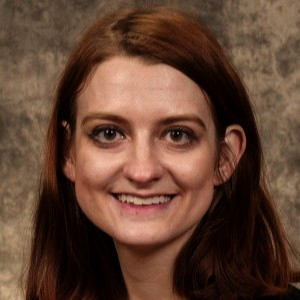
When I was hired in my current position, I was excited to work for a company that was so dedicated to promoting diversity, equity, and inclusion; six months later, that excitement was mixed with appreciation when I was diagnosed with ADHD. Once I began getting treatment for ADHD, I realized how much physical and mental effort I had been spending on compensating for it in the workplace without even realizing it.
Here are a few pieces of Jewish wisdom that make excellent guiding principles, for those of us with disabilities and allies, to create a workplace of belonging for everyone:
"Do not separate yourselves from the community." (Pirkei Avot 2:5)
Shortly after I was diagnosed with ADHD, one of my coworkers started an affinity group for employees with visible and invisible disabilities. The group brought people together from across departments and gave us a space to talk about life, work, and useful coping strategies/advice to help us navigate the workplace. As time went on, our group also started putting together panels aimed at spreading awareness and education about different disabilities. Finding community helped me become more confident in owning my diagnosis, explaining how my disability impacts my work, and learning how to advocate for myself.
"If I am not for myself, who is for me?" (Pirkei Avot 1:14)
One thing that many people struggle with, regardless of whether they live with a disability, is advocating for themselves. I found that I had internalized the narrative that I was a burden, and asking for my needs to be met was a difficult step for me to take. However, once I realized that asking for my needs to be met did not need to be approached as a confrontation and could instead be seen through a lens of collaboration, I found that I had a much easier time advocating for myself. Whether I'm explaining the type of feedback that I best respond to or sitting on a panel to raise awareness about disabilities, advocating for myself has helped foster a nuanced understanding of disability for my coworkers, just as listening to the experiences of other coworkers with disabilities has help me broaden my own thinking.
"God stamped all people from the same mold, yet each is unique." (Mishnah Sanhedrin 4:5)
What are some unique skills you bring to the workplace? What about coworkers on your team? We each bring our own talents to the workplace. While having ADHD means that I often need to set reminders for scheduled appointments and keep multiple iterations of to-do lists, it also means that I can think of creative solutions to problems, keep calm in a crisis, and adapt to changing needs quickly. Valuing everyone's unique strengths makes for a workplace that's dynamic, vibrant, and responsive.
"Who is honored? One who honors their fellow humans." (Pirkei Avot 4:1)
One key to creating a workplace of belonging around disability is deceptively simple: respect the full person; don't let their disability become their defining trait. When it comes to disability, honoring each other means acknowledging that some things may be more difficult for someone and working with them to help navigate those challenges. However, honoring each other also means acknowledging strengths, uplifting successes, and seeing everyone's intrinsic worth.
"So God created human beings in the Divine image." (Genesis 1:27)
Finally, train yourself to see the Divine spark in everyone, regardless of whether they've disclosed a disability or not. Once you begin looking for that divine spark, you'll find yourself appreciating the similarities and differences that make each of us unique. By creating a culture of empathy and understanding, appreciating everyone for who they are, the workplace can be elevated to a kehillah kedosha, a holy community.
Perhaps in reading this, you've found that these principles are not necessarily restricted to interacting with coworkers with disabilities, but also are useful principles for working together with anybody. This is something that often gets lost in the discussion around disabilities: accommodations, while perhaps initially intended for people with a specific disability, often benefit everyone. For instance, while curb cuts were initially intended to be accommodations for people who use wheelchairs, they're extremely helpful for anyone using a wagon, shopping cart, stroller, and more. In the same way, who wouldn't benefit from a bit more mindfulness and consideration when interacting with their coworkers? I invite you to join me in creating workplaces of belonging for everyone.
Related Posts

How We Can - and Must - Honor Neurodivergent Jews

Reflecting on our Jewish Identities, Safety, and Belonging

